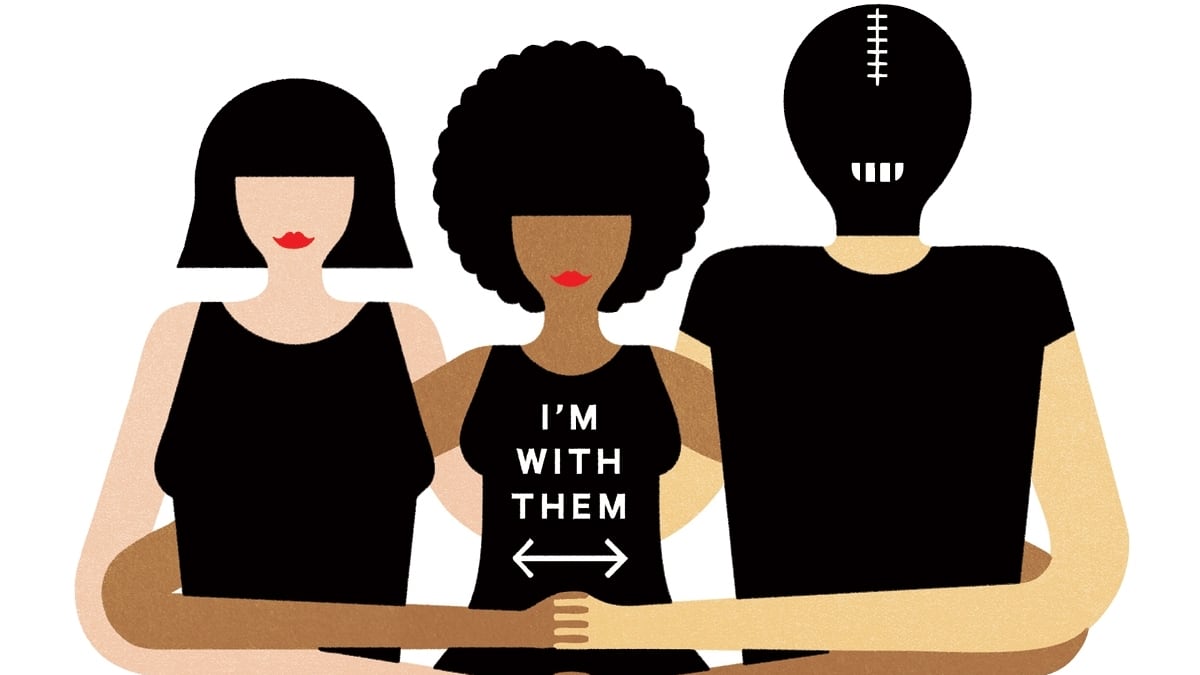By Angie Gunn, LCSW
In a recent Willamette Week article, the authors visited a former Kink Café for a Polyamory 101 class and shared one perspective on polyamory. I would like to provide another, first-hand perspective.
It is important to note that alternative sexuality is not the same as polyamory. Many people practice polyamory or ethical non-monogamy but don't engage in BDSM/ Kink/ Fetish/ or any alternative sexual practices.
The term polyamory or ethical non-monogamy speaks to relational structure, not orientation or expression. Many individuals may fall along the sexual/ romantic spectrum within non-monogamy, and they also may or may not also practice an alternative sexual expression. Polyamory usually refers to individuals who date and partner in meaningful, long term ways, with more than one person, but may also include casual relationships too. Each grouping of people defines polyamory for themselves, and some identify as polyamorous or non-monogamous (an identity or orientation) even when not in relationships.
In general, monogamy has far more restrictive "rules" than polyamory, though they tend to be fewer in number. Monogamy requires that you don't sleep with or romantically engage with anyone else (one rule, but very restrictive), whereas polyamory sets broad agreements related to how we engage with other people (many agreements, but very permissive).
Monogamy is still a valid relationship style and is not inherently selfish or shortsighted, but speaks to that individual and couple's understanding of themselves, their needs and how to best meet them.
In addition to polyamory and monogamy, the range of relationship expression can vary widely. Non-monogamy is an umbrella concept which can include relationship anarchy (a very individualistic style of relating), solo polyamory (identifying as someone who practices long term partnering with more than one person, but does not combine/ intertwine lives as much), Mongamish (Dan Savage coined term to refer to generally monogamous people who have occasional encounters with others), and swingers/ lifestylers are those who generally have sex with others when with their partner, for time limited periods.
For me and my non-monogamous family, I date and live with one person, sometimes called a nesting partner. He dates another person, sometimes referred to as my metamour (partner's partner), with whom he stays with a few days a week. I also date another person in town, and have casual sexual, romantic, or close friend relationships with a number of people locally as well as across the country. All of these individuals are close to me, considered an extended part of my family. Both my nesting partner and my metamour have a number of other casual BDSM or sex partners locally and across the country. Overall we have a high level of respect, care and consideration for one another. The four of us have mutual communication and shared agreements regarding STI testing, barrier use, and sharing of space and time. No one has veto power, or control over the others, but we communicate and care for one another's feelings as we venture into long term non-monogamous partnering.
A common misconception is that non-monogamy is all about sex. On the contrary, it's about flexibility and beauty and connection outside of typical constraints. I have partners who are non-sexual, those who I relate to on a variety of levels with the ability to be physical, but without the requirements to do so that often exists in monogamy.
Common fears include jealousy, competition and abandonment, yet these risks are not any higher in non-monogamy. We see that adding a new partner is not a threat to any relationships involved, but an adding on, a building up and nurturing through love. While this sounds beautiful and straightforward, it's actually incredibly difficult, heart wrenchingly vulnerable work to find your family or community, while managing your own needs and emotions. Finding individuals who fit you, your wants and needs, and fit well within your respective partner configuration is really complex. Many who try non-monogamy find that it's not a great fit, while others find the that process of the ideological shift in value systems and learning new patterns of relationship negotiation suits them well.
Regardless of your choice in partnering, there is an expansive community network of others to learn from, share with, and collaborate with here in Portland. One such organization facilitating these opportunities is SPEEC, Portland's Sex Positive Event and Education Center.
As noted briefly in my description of our non-monogamous family, we have low levels of power or control, few but clear agreements, complete openness in terms of types of sex/ romance/ or play, and a communal, shared approach to partnering and creating community. This has been incredibly fulfilling for us.
This is just our way.
Angie Gunn is a Sex, relationship and trauma therapist specializing in alternative relationships, LGBTQIPA+, sexual shame, pleasure and healing working in Portland, OR. You can seek therapy with her at connectivesextherapy.com.
